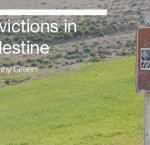ISCI’s Director Professor Penny Green discusses popular protests, civil society and crushing the Muslim Brotherhood in Egypt

In an EXCLUSIVE interview with Middle East Monitor (MEMO), ISCI’s Director Professor Penny Green discusses popular protests, civil society and crushing the Muslim Brotherhood in Egypt.
“Once security officers, police officers and military know that they are fully protected then levels of cruelty, violence, and torture can know no bounds.”
Last month, protestors in Egypt took to the dusty streets of Cairo once again in defiance of a new, controversial assembly bill signed by the Interim President Adly Mansour. The law demands a three-day notification period in advance of demonstrations and gives security officials the authority to forbid them if considered a threat to national security.
As demonstrators called for the law to be repealed, police fired teargas and water cannons into the crowds. “I think it’s only going to ferment unrest and violence” says Penny Green, Professor of law and criminology at King’s College London and director of International State Crime Initiative. “I think it’s an attempt by the military to crush the Muslim Brotherhood.”
The behaviour of the interim government, the police, the judiciary and the military is part of a wide spread crackdown on Egyptians who have openly expressed they are unhappy with the current regime. At the end of November, 21 women were arrested at a protest for the deposed President Mohammed Morsi. 14 were sentenced to 11 years in prison and seven minors to juvenile detention on the charges of thuggery, gathering and weapons possession.
“The kind of sentences that they’ve received are longer than those afforded to police officers who actually committed murder against protestors during the revolution” Green explains. “They are ridiculously disproportionate, but I think it’s very clear evidence of what these laws are about. If the revolutionaries are now down to about 10 per cent, these laws are really about crushing what remains of dissent, particularly the Muslim Brotherhood, because it’s a way of securing the coup.”
After a month of international condemnation, the girls were released on suspended sentences. Mansour is said to be issuing a full pardon for the women, a procedure largely designed to appeal to the international community. “It’s a way of asserting both his authority – that he will put them through the due process of law as his repressive regime understands the due process of law – and then he will exercise mercy. It seems to me a not particularly clever, but a strategic device in which to garner support” says Green.
Since the 2011 revolution government buildings, police barricades and people’s houses across the country have become a space for Egyptians to express political ideas and sentiments through graffiti, an art form that was heavily censored under Mubarak. Now a new law is being discussed in Egypt, which could hand out 4 year jail terms and a heavy fine for graffiti artists who are caught.
“I think it’s hugely significant in the sense of what it represents” says Green. “It’s an extreme form of repression to introduce prohibitions against an artistic, slash political form of expression. It demonstrates too that the military learnt from the 2011 revolution where graffiti, where music, where songs, where poetry, where culture was a really significant part of binding the protestors together and it was a really successful method by which to translate the revolution for an international audience.”
Another disturbing law currently under debate threatens to grant senior officials immunity from criminal prosecution if their actions were taken in good faith. “When you have got state agents who are actively involved in murdering dissenters, in conducting massacres and injuring and shooting the eyes out of young protestors, once impunity is enshrined into the law, the kind of dictatorship you’re looking at is a terrifying dictatorship and a dictatorship that operates on the basis of terror because they know that they can act with impunity” says Green. “Once security officers, police officers and military know that they are fully protected then levels of cruelty, violence and torture can know no bounds” she adds.
The package of laws introduced, believes Green, “are designed to completely suppress the kind of political protest that led to the overthrow of Mubarak,” a reality the current regime fears the most because there has been a continuity of repression since his downfall. “The practices of Mubarak were reflected in the practices of the Morsi regime, and are now reflected in the practices of current interim regime backed by Sisi’s military.”
According to Green, it is far more powerful to look at organised civil society, rather than the law, and use this as a measure of a state’s behaviour. Authorities are unwilling to class their behaviour as illegitimate in terms of the rules they expect the rest of the population to abide by, she explains. “This is clearly what the present regime recognises and the instigation of this series of prohibitive laws is designed to make sure that that exposure, that labelling process of themselves as criminal is eliminated” she says.
“In Egypt it’s clear that popular protest is about recognising and saying to an international audience that what their government is doing is wrong, and it’s wrong in the way that it breaches international human rights norms, it’s wrong in terms of the violence it exerts against its people. It’s wrong because it is an illegitimate form of government.”
So what role can countries outside of Egypt play? “The international community were very friendly with Mubarak for a very long time, and so I don’t think we can rely on the United Nations or the super powers. We know that we can’t” says Green.
“But I think international civil society has a role to play” she continues. “And effectively that role is to disseminate what is happening in Egypt when brave and courageous, particularly young, people in Egypt are demonstrating, are filming, are engaged in all kinds of protest including graffiti writing – getting that evidence out of Egypt and into a broader international audience.”
One of the things the west wants now, believes Green, is stability and securing their own interests; for that reason it is unlikely they will have problems with the military. “The international political community would be very concerned about the rise of the Muslim Brotherhood and an Islamic regime operating in Egypt and so for them, the military represents the potential for economic stability, regional stability. Of course it doesn’t because repression is inherently unstable. And criminal regimes are inherently unstable” she says.
Since Morsi was ousted on the 3 July, 5 members of his administration have been held at an undisclosed location, with very little judicial process and contact with the outside world. Green points out that Egypt was the country of choice for the west for illegal renditions and the preferred destination when they wanted people tortured. “When people are held incommunicado in a country, which has a torturing history, we know exactly what’s happening” she says.
The practice of disappearing seems to be emerging again in Egypt, believes Green, in order to silence communities. Though torture isn’t effective in extracting confessions, it is in terms of breaking some individuals. “Once somebody has been tortured, once somebody has been broken, their health is gone, their mental health is severely damaged and when they return to their communities they bear witness to the consequence of torture. This induces a fear in the population and that fear is about political control.”
“The risks are living risks, you can see it in front of you” she continues. “And because what torture does it takes a person from their organisation, from their struggle, isolates them, individualises them, dehumanises them. And it’s their whole process of dehumanisation which allows torturers then to be able to inflict the most enormous cruelty against another individual. The important thing about torture is that it’s unsuccessful if the victim is murdered because it’s more successful for a broken individual to be returned to the community.”
The most powerful way of addressing Egypt’s problems would not be to see General Sisi, who led the coup against Morsi, in front of the International Criminal Court, says Green. “I would prefer to see ordinary Egyptians making decisions about the way in which Mubarak or Sisi or Morsi are dealt with. But the more important thing is actually undoing the structures of repression inside Egypt, that would be a very big chore, because that’s part of the problem, the institutions of repression of the security services, the ministry of the interior, the police force, the military, and intelligence services all remain intact. And so each successive regime has been able to draw on them when they haven’t delivered and when popular protest demonstrates their unpopularity.”
— To view the original article, click here—











































